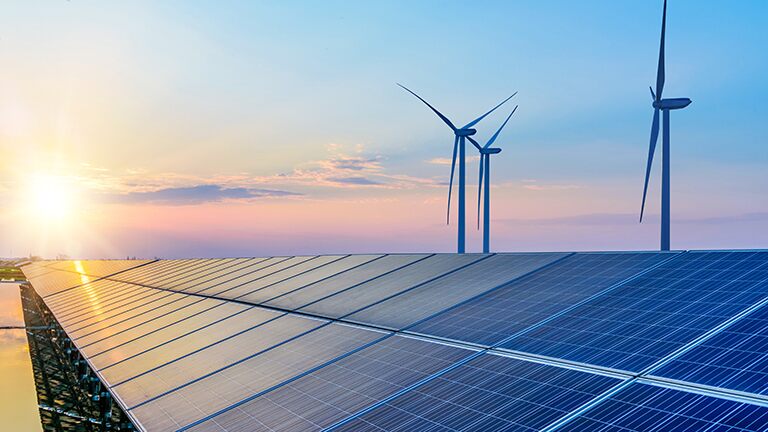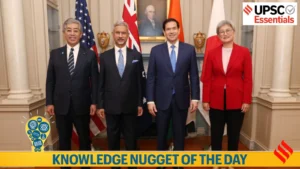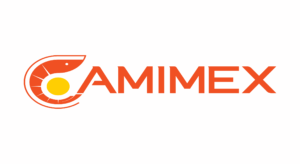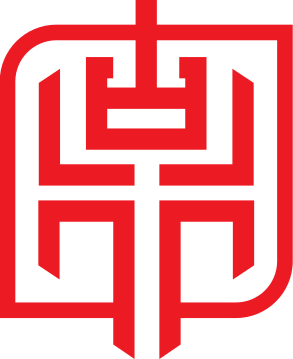In October of this year, Japan and the United States announced a trade agreement related to clean energy technology minerals. Not long before that, South Korean battery giant LG Energy Solutions (LGES) stated that it had signed an investment agreement with Australian lithium developer Green Tech Metals Ltd. to strengthen the procurement of key minerals used in electric vehicle batteries. These two events are indicative of the proactive international cooperation efforts undertaken by Japan and South Korea in the past two years to ensure the security of their critical mineral resource supplies. Their practices and experiences are worth considering.
I. Japan’s Multilayered Approach to Secure Critical Mineral Resource Supply
Japan has long been committed to ensuring the security of mineral resource supplies, and since 2021, the Japanese government and businesses have accelerated their efforts in this regard, as follows:
Strengthening investment review for critical minerals to reduce domestic industry vulnerability. In August 2021, the Japanese government took measures to tighten control over foreign investors’ exploration and mining of 34 rare metals, including tungsten, molybdenum, rare earths, lithium, cobalt, and indium. It added the rare mineral industry, including tungsten, molybdenum, and rare earths, to the list of foreign investment focus areas under the Foreign Exchange and Foreign Trade Act amendments. The law stipulates that foreign investors will be subject to prior review when acquiring 1% or more of shares in core sector companies, significantly lower than the previous 10% share acquisition requirement.
Enhancing support for domestic industries to ensure their development. In April 2021, to mitigate the risk of interruptions in the supply of key raw materials required for the production of pure electric vehicles (EVs), the Japanese government increased its funding support for rare earth resource development. By providing more than half of the funding for exploration and development of relevant rare earth mines through the Japan Oil, Gas and Metals National Corporation (JOGMEC), it reduced the burden on private Japanese companies, accelerating the assurance of rare earth resources. JOGMEC, in coordination with relevant Japanese ministries, adjusted its operational policy from the perspective of resource security. In April 2023, Japan’s Ministry of Economy, Trade, and Industry announced subsidies for mining and smelting projects of key minerals for Japanese companies, covering up to half of the costs, aimed at ensuring the supply of essential raw materials such as lithium and rare earths required for manufacturing electric vehicle batteries and engines. The Japan Metal and Energy Security Organization will lead the establishment of a fund with an allocation of 105.8 billion yen (approximately 5.4 billion yuan) from the relevant budget, with lithium, manganese, nickel, cobalt, graphite, and rare earths as the main targets of support. Additionally, preliminary surveys and profit assessments of critical minerals exploration will also be included in the subsidy scope. Companies receiving subsidies are required to supply to Japan according to specified quantities and make every effort to prioritize meeting domestic needs in times of supply shortages.
Enhancing the recycling of critical minerals to improve resource sustainability. In May 2022, to ensure the supply of metal resources, Japan’s Ministry of the Environment strengthened the recycling of discarded household appliances. The plan is to increase domestic recycling volume while importing and processing from overseas, aiming to double the processing volume by 2030 compared to the current amount. For pure electric vehicles (EVs), which are becoming more common in decarbonization efforts, metals like lithium are indispensable. The main import source is Southeast Asia, which will drive the export of discarded household appliances that are difficult to handle in Southeast Asian countries, such as mobile phones and computer motherboards. Metals like copper and aluminum, commonly used in many products, will also be imported and processed at recycling sites in Japan after importation.
Strengthening international cooperation between governments to ensure the supply of critical minerals. In January 2021, Japan signed a cooperation agreement with Brazil to promote the production of niobium and graphene through new technologies. The Brazilian Ministry of Mines and Energy indicated that both sides would exchange experiment and prototype information, explore applications for niobium and graphene, and enhance the value of products and industrial chains. In December 2022, the Japanese government signed a joint statement with the Democratic Republic of Congo (DRC), which included cooperation in the mining sector, aimed at safeguarding mining rights in the southern DRC and signing long-term supply contracts, among other objectives.
Strengthening government-to-government trade coordination to protect the overseas interests of domestic companies. In October 2023, the governments of Japan and the United States announced a trade agreement related to clean energy technology minerals, agreeing not to impose export tariffs on each other’s critical mineral trade and to coordinate standards for the production of critical minerals. The agreement will be reviewed every two years to determine whether it should be extended or modified. Additionally, the agreement prohibits both countries from imposing bilateral export restrictions on the most critical minerals for electric vehicle batteries, including lithium, nickel, cobalt, graphite, and manganese. According to the agreement, electric vehicles using critical minerals purchased or processed in Japan will be eligible for tax relief under the United States Inflation Reduction Act.
II. South Korea’s Efforts to Ensure the Supply of Critical Mineral Resources through Government and Business Cooperation
In contrast to Japan, South Korea also highly prioritizes the supply of critical mineral resources, and in the past two years, the South Korean government’s policies and corporate actions have been continuous. The specifics are as follows:
Strengthening the management of critical minerals to ensure domestic supply. In August 2021, the South Korean government held the 42nd Emergency Economic Central Strategy Headquarters meeting and released “Rare Metals Industry Development Strategy 2.0,” which aimed to double the reserves of rare metals such as tungsten, molybdenum, and rare earths and ensure a 100-day supply, significantly increasing reserves from the previous 57 days. By 2025, South Korea plans to mine and nurture the top 100 core companies in rare metals. In February 2023, the South Korean Ministry of Trade, Industry, and Energy announced a strategy for securing critical minerals, selecting 33 minerals required for cutting-edge industries such as semiconductors and batteries, and designating 10 minerals, including lithium and nickel, as the “Top Ten Strategic Critical Minerals” for focused management. The South Korean government will develop a global mineral deposit map and supply-demand map for critical minerals and establish an early warning system.
Strengthening international industry cooperation to secure overseas mineral resources. In January 2022, South Korea and Australia signed a memorandum of understanding on critical mineral supply chain cooperation, further enhancing cooperation in resources and energy, especially in technology, trade, and investment, beyond their previous commitments. In September 2022, the leaders of South Korea and Canada announced in a joint statement that the two countries would deepen their strategic partnership in supply chain resilience, positioning themselves as globally competitive players in the critical mineral supply chain and the battery and electric vehicle value chain. They plan to establish a value chain, including critical minerals, through the memorandum of understanding, to support the transition to clean energy and energy security.
Strengthening overseas investment cooperation by businesses to ensure the security of critical mineral supplies. In March 2022, South Korean steelmaker POSCO announced a $4 billion investment in a new lithium mining project in Argentina to meet the demand for key metals for rechargeable batteries. The project is expected to produce 25,000 tons of lithium hydroxide in the initial year and reach 100,000 tons after full production. In April 2022, a consortium of several South Korean companies, including LG Energy Solutions, LG Chem, LX International, and POSCO Holdings, signed an investment agreement with Indonesian nickel mining company Antam and Indonesian battery company IBC to construct a complete industry chain from nickel refining and purification to precursor and cathode material production, battery pack assembly, and finished product assembly in Indonesia, with a total investment of $9 billion. In September 2022, South Korean LG Energy Solutions signed cooperation agreements with three Canadian mining companies to procure lithium hydroxide and cobalt sulfate. Starting in 2023, LG Energy Solutions will receive 70,000 tons of cobalt sulfate over the next three years from Electra. Snowlake and Avalon will become suppliers of lithium hydroxide for LG Energy Solutions. Snowlake will supply 200,000 tons of lithium hydroxide, and Avalon will supply 55,000 tons from 2025 to 2035. In October 2022, South Korean electric vehicle battery manufacturer SK On announced a lithium supply framework agreement with Australian lithium mining company Lake Resources. Under the agreement, SK On is expected to start receiving battery-grade lithium from Lake Resources in the fourth quarter of 2024, after acquiring a 10% stake in the company. The supply agreement has an initial term of five years, extendable for another five years, with annual supplies of 15,000 tons in the first two years and 25,000 tons annually thereafter. In September 2023, LG Energy Solutions signed an investment agreement with Australian lithium developer Green Tech Metals Ltd. to strengthen the procurement of critical minerals required for electric vehicle batteries. Under the agreement, LG Energy Solutions will acquire approximately 7.89% of the company’s shares and obtain 25% of its annual lithium concentrate production within the next five years.
III. Lessons to Learn from Japan and South Korea’s Practices to Ensure the Supply of Critical Mineral Resources
Both Japan and South Korea have limited land area and insufficient domestic resources. They are also highly developed in manufacturing and heavily reliant on imported mineral resources. In recent years, with the rapid development of the new energy vehicle industry, both countries have made concerted efforts at the government and corporate levels to ensure the supply of relevant mineral resources. While their practices share commonalities, there are also some differences. The commonalities include a high level of government attention, with various departments implementing multiple supportive policies. Both countries have strengthened cooperation with resource-rich countries such as Australia, Canada, and Brazil, deepening collaboration and elevating the level of cooperation. Furthermore, both countries’ enterprises have made significant investments in numerous resource-rich countries to secure the rights to relevant mineral resources. The difference lies in Japan’s emphasis on both overseas resource acquisition and metal resource recycling, with Japan’s technological prowess and actual results in resource recycling being particularly outstanding.
In conclusion, against the backdrop of intensifying global competition for critical mineral resources, rising protectionism in critical mineral sectors in some countries, and prolonged geopolitical conflicts, critical mineral resource prices remain high, and there is a risk of supply-demand imbalances. The actions of the governments and companies in Japan and South Korea are worth considering as reference points for addressing these challenges.





